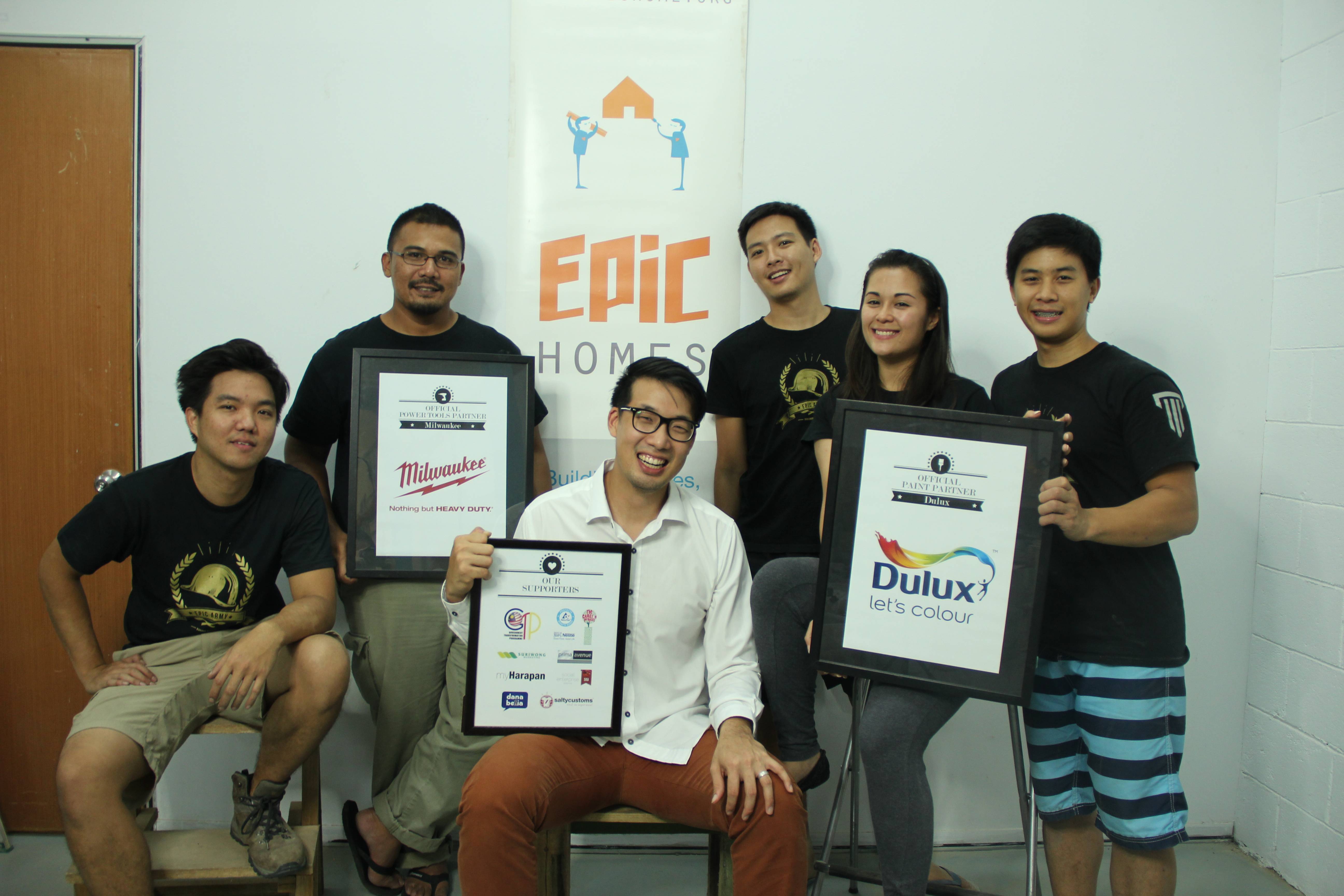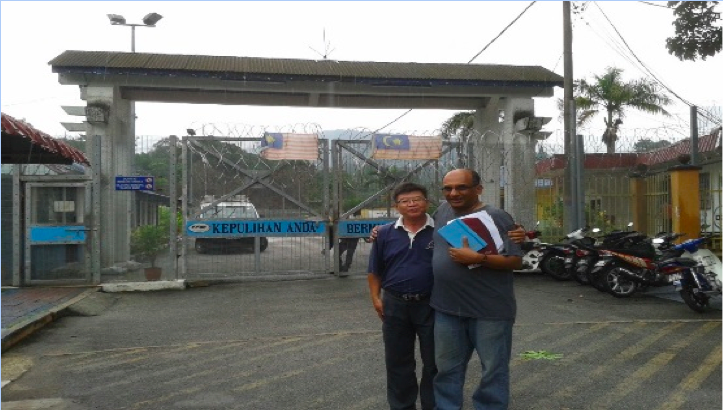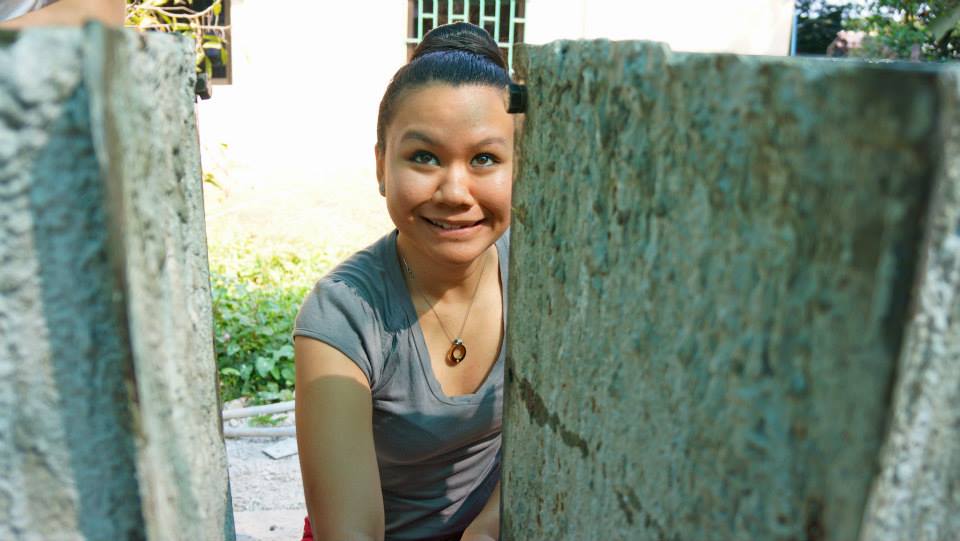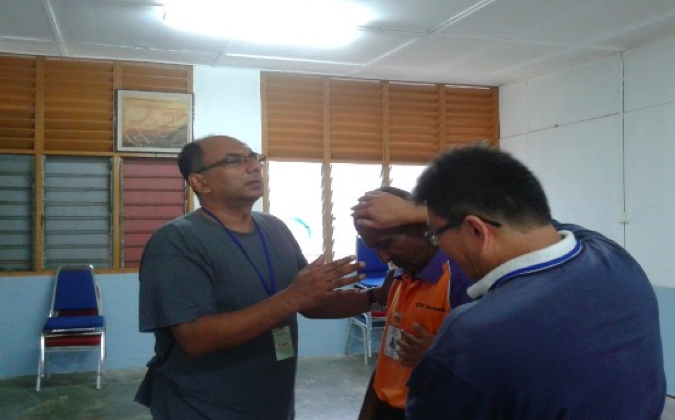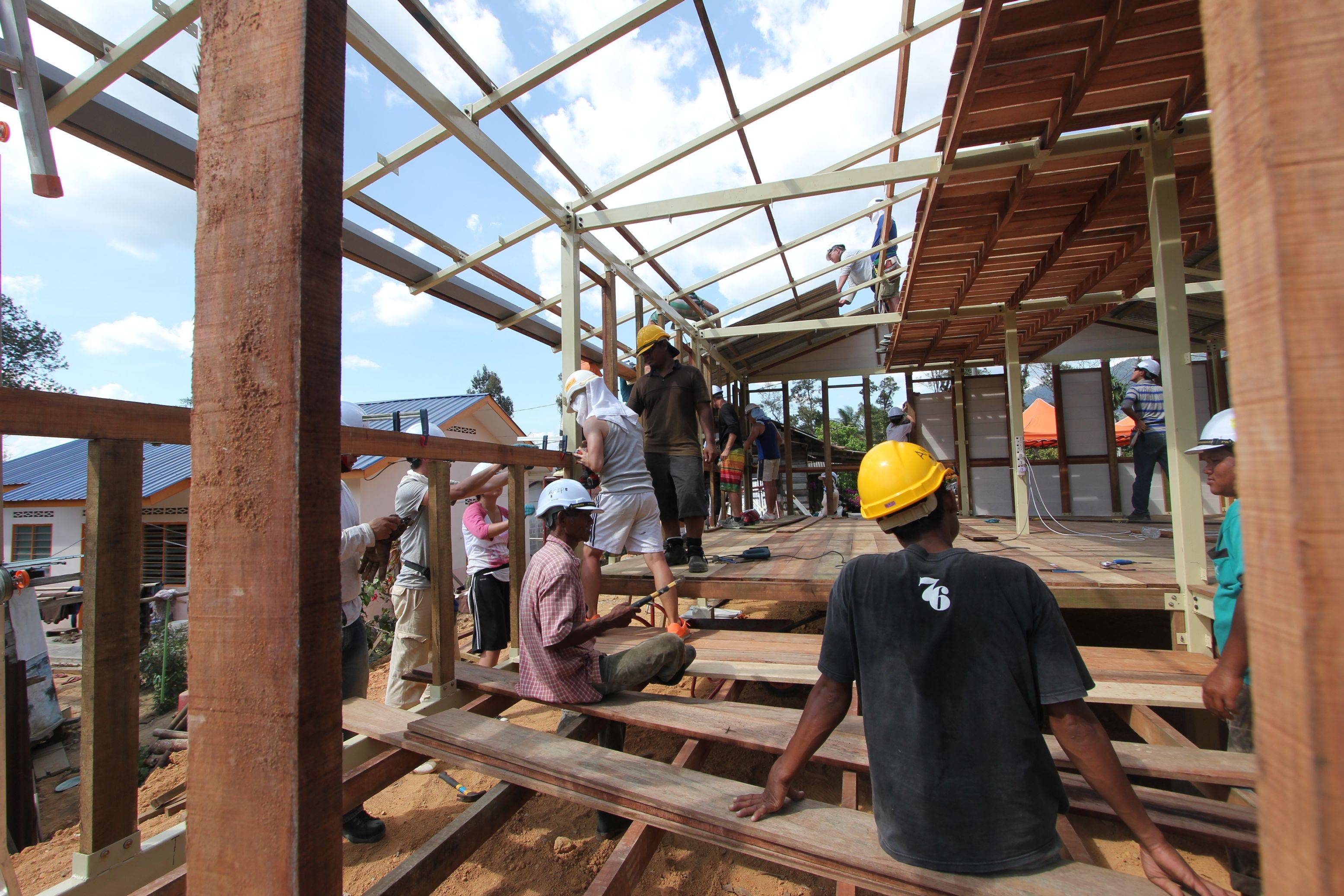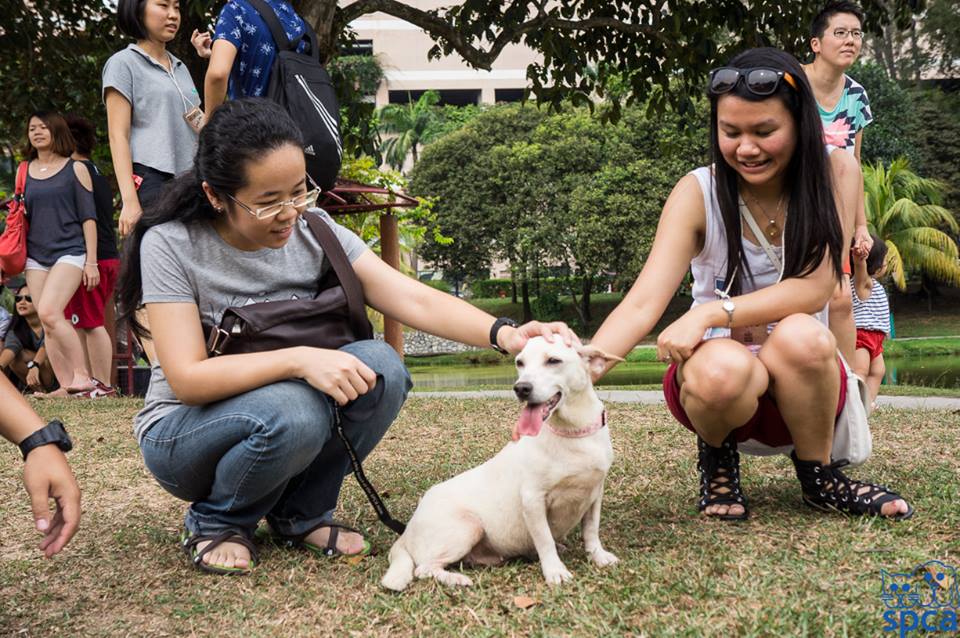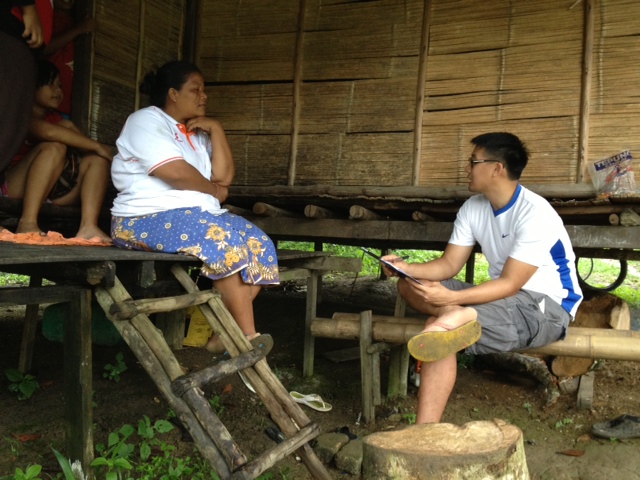Three Samaritans Share How Volunteering Changed Their Love For Malaysia
For the third edition of #HowToLoveMalaysia, we look at unsung heroes of Malaysia - everyday Malaysians helping their less fortunate counterparts to live better lives.
Imagine being exposed, every day, to communities in Malaysia we rarely see, think, or talk about - abandoned parents, recovering drug addicts, homeless orang aslis.
Would an understanding of Malaysia's underprivileged communities change how you perceive and appreciate our country?
John-Son Oei, Bobby John and Estee Leong have dedicated their lives to helping people. We talked to these kind-hearted Malaysians to understand how working with our nation's underprivileged communities have affected their love for the country.
John-Son Oei is a 27-year-old social entrepreneur who founded EPIC or Extraordinary People Impacted Community in 2010. EPIC's flagship is EPIC Homes, a non-profit initiative on a mission to provide sustainable homes for underprivileged communities in Malaysia.
John-Son first started EPIC with four friends after realising that there were many people who were extremely eager to contribute to society at a grassroots level, but lacked the opportunities to do so. Thus, they formed EPIC with the purpose of inspiring, mobilising and empowering people to make a positive impact in their communities.
John-Son has made a commitment to revolutionise the way people think about tackling social challenges. Not willing to conform to the status quo, he strives to go beyond the ordinary to play his part and help make the world a better place.
54-year-old Bobby John worked with Malaysian Care, a non-profit Christian NGO committed to serving the poor and needy irrespective of ethnicity, for four years in the Prison, Drugs and AIDS department.
While working for Malaysian Care, Bobby had the privilege to meet over 30 kind-hearted volunteers. He became their confidant as the volunteers vented their frustrations and problems faced while reaching out to prison inmates.
Bobby would go with them to prison to meet, encourage, and share with the inmates during Christian services. Six months ago, Bobby decided to start an NGO of his own. Together with his partner, they formed Door of Hope (Persatuan Kebajikan Pintu Harapan).
Through Door of Hope, Bobby wants to see people who are entangled in drugs and other forms of addiction be totally set free and serving the society.
Estee Leong constructing the cemented water filters during a volunteering stint with Water for Cambodia.
Image via Estee LeongEstee Leong is a serial volunteer. She is only 24-years-old but has a long history of volunteering her time, money and effort to causes she finds dear to her heart.
In the past year alone, Estee volunteered at the Rent for Hope fundraising event for the refurbishment of the SPCA animal shelter, and had also participated in an online fundraising campaign for water filters in Cambodia. Estee even travelled all the way to the villages of Cambodia to personally install the water filters.
For the past year, Estee has been regularly visit the Seri Setia Old Folks Home in Sungai Way. It has become a monthly ritual for her to spend time with the grandfathers and grandmothers there, cut their nails, give them massages and even clean up their home.
Why did you choose to be involved with volunteering work?
Bobby John: I work with a lot of volunteers and encourage them to be involved in the lives of those who are lost in addiction, in prison, in halfway homes and rehab centres. As volunteers we can make a difference in their lives, so that they can have a better tomorrow. This includes helping them get jobs, reuniting with their families and making a difference in society. It was for this reason I formed Door of Hope.
Estee Leong: I was influenced by my parents. Back then, they used to regularly visit homes for the disabled. Some of the people from the homes even grew to become very good friends of my parents. I followed in their footsteps and when I volunteer, I feel contented. This feeling of contentment literally penetrates into my soul. I am happy that I can help others and I do not expect anything in return. I am not particular in choosing any organisation to volunteer for, as long as it is for a good cause, I am ever ready to join them.
John-Son Oei: We started EPIC Homes as a project to provide one man with a new home. We wanted to make it possible for people who care to build houses side-by-side the intended family to kick-start relationships. We realised that there was a huge need in housing within the orang asli community as there are over 12,000 families that are in need of housing aid. There are many other things that are important like education and finding a job, but without a safe and secure home, a family will struggle to decide where they would like to go next in their life. I honestly never imagined EPIC Homes would gain so much traction and growing to what it is today.
Has helping the less fortunate changed your understanding and perception of Malaysia?
Estee Leong: As Malaysia is a still a developing country, I find that the mindset of Malaysians are more materialistic. I see Malaysians chasing their dreams of becoming wealthy, but there are only a few who actually take notice and help the less fortunate. The number of old folks home have been increasing year by year, this also means that the number of old folks being abandoned by their families are increasing. Most of us studied Pendidikan Moral in school, but sometimes it seems that only a few of us actually implement the lessons we learnt into our daily lives.
Bobby John: Volunteering has not in any way changed my perception of Malaysia – Malaysia is still a very beautiful country. We need to be sensitive and caring to all irrespective of race or culture; everyone deserves a chance in life, to pick up the pieces when they fall, and have someone to help them along their way till they can stand on their own. It does not matter how many times you fall, but when you do, with the help of God and men, he or she is able to be triumphant.
John-Son Oei: It has definitely made me more hopeful and restored my faith in humanity. I would say that I started off as a very cynical person, thinking that Malaysians were apathetic people. However, I decided to put whatever belief I have in people to the test. I found that every time I had the courage to do something epic, more and more people joined my team and I. While diversity in ethnicity, religion and social economical status have been used to cause much disunity in our country, I’ve seen it work harmoniously at every EPIC Homes build site. I see with my own eyes how our diversity is complimentary to the results and not conflicting. I believe that this can be replicated on a national scale.
Tell us the biggest lesson you have learned about Malaysia from your years of non-profit and volunteering work
John-Son Oei: There’s a huge gap between the rich and the poor, between urban and rural dwellers. This is our biggest issue, where our own people are not aware of the struggles of their fellow countrymen. Until and unless we find a way to narrow this gap, our country’s growth will stagnate. I find great hope in seeing that those who become aware are mostly compelled to action than ignorance. This responsibility is not just on the government’s shoulders but should be shared by all Malaysians.
Bobby John: Malaysians in general do have a heart, a heart to care. So often we read it in our papers as to how as a nation we do care. A fine example is when we mourned together during the recent MH17 and MH370 tragedies. It is for this reason why there are many volunteers with a heart of gold at Door of Hope ready to help those in need, be in the area of counselling, to be their encouragement, so that even the outcasts of society know what it means to be loved and cared for.
Estee Leong: We still have a long way to go before we truly become One Malaysia. I've noticed that racial discrimination happens even in the Old Folks Homes that I visit. Some Old Folks Home only accept one certain race, and would turn down people of other ethnicity that are in need. This is Malaysia, we live in one country together, we have to one one. To live the Malaysian dream, we have to be one, no matter what we are doing, no matter where we are.
Do you consider yourself a patriotic person? How do you show your love for Malaysia?
Bobby John: I don't think I'm too patriotic, but I do fly our flag at home.
Estee Leong: I personally think that flying the flag alone does not mean you are patriotic. Patriotism is not just about respecting the flag and the national anthem, but also creating a harmonious community in the country. Patriotism is about respecting everyone and supporting everyone in our population, especially the unfortunate. I consider myself patriotic in the sense that I actively help the people around me, regardless of race and religion. In terms of helping each other as fellow Malaysians, yes, I do think I am patriotic.
John-Son Oei: If your definition of patriotic is one who wears a flag as a shirt, then no. However, I love Malaysia and believe in its people and its potential to be much greater than what it is today. I show my love for Malaysia through small purposeful actions to make myself a better person each day so that I can positively influence the people around me to also become better people. I believe real sustainable change lies in the process and not big events.
What is one thing you want fellow Malaysians to know?
John-Son Oei: If you care about something, don’t be afraid to show it. You are definitely not alone. There are hundreds, thousands or even millions waiting for you to just take a tiny step forward so that they can follow. Although things may seem bleak at this moment, don’t lose hope, keep your little light shining and believe that together, we will make the most EPIC light show on earth.
Bobby John: There is hope only do not wait until it is too late. Door of Hope is in the business of restoring life, to one that is meaningful and worthwhile.
Estee Leong: There are 2 type of volunteering work: you could contribute your energy and time, or you could donate money, clothes, food and basic necessities. Volunteering can be just anywhere and anytime. You do not necessarily need to engage in an organisation to do good. Volunteering can be done in our daily life, such as helping a blind person cross the street or even simply buying a packet of rice for a beggar on the street.
Learn more about Door of Hope and EPIC Homes here:
"To Malaysian out there – Door of Hope is ever willing to help you the best we can. If you have a brother, sister, relative, friend who is in any form of addiction, or you yourself need counselling and need to be cared for, if your life is in a mess or if your organisation needs training to handle a staff in trouble, please call us at 012-6632597," Bobby John.
EPIC Homes focuses on building relationships between the urban and rural divide through the activity of building homes for underprivileged Malaysian communities. Know more about EPIC Homes Here.
